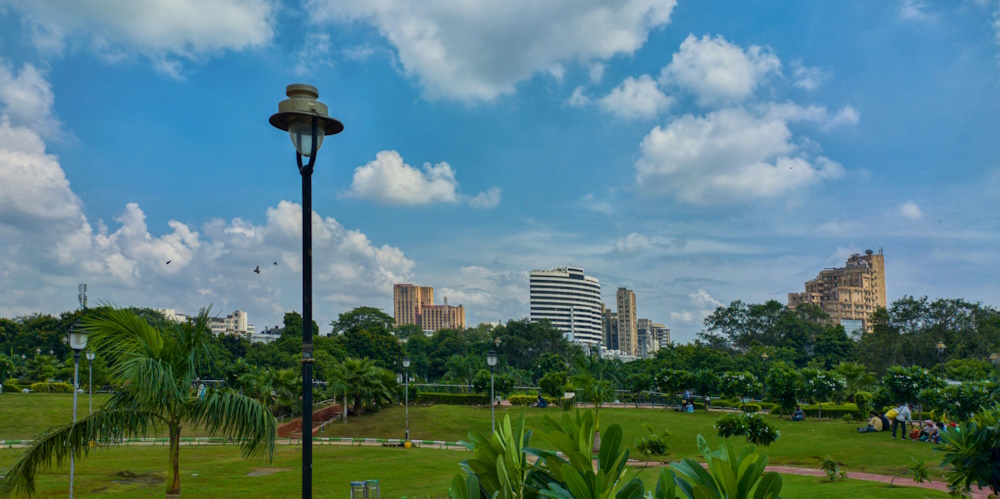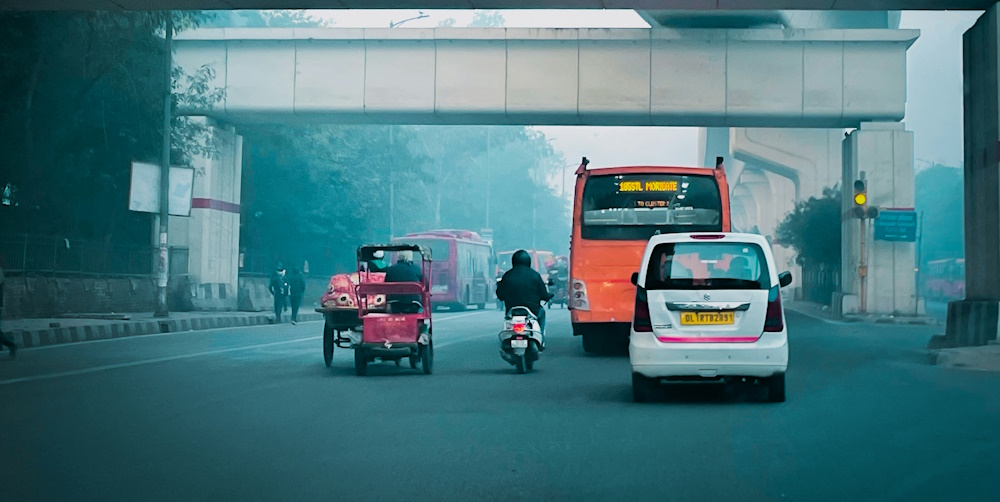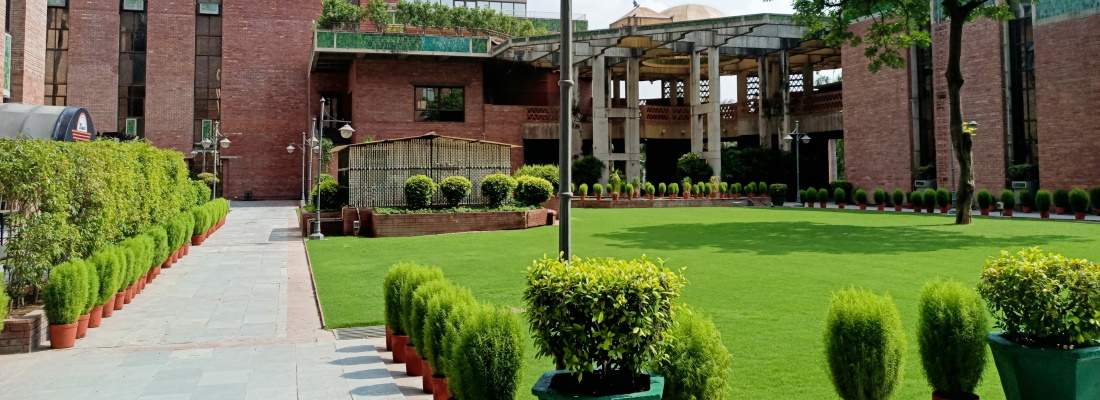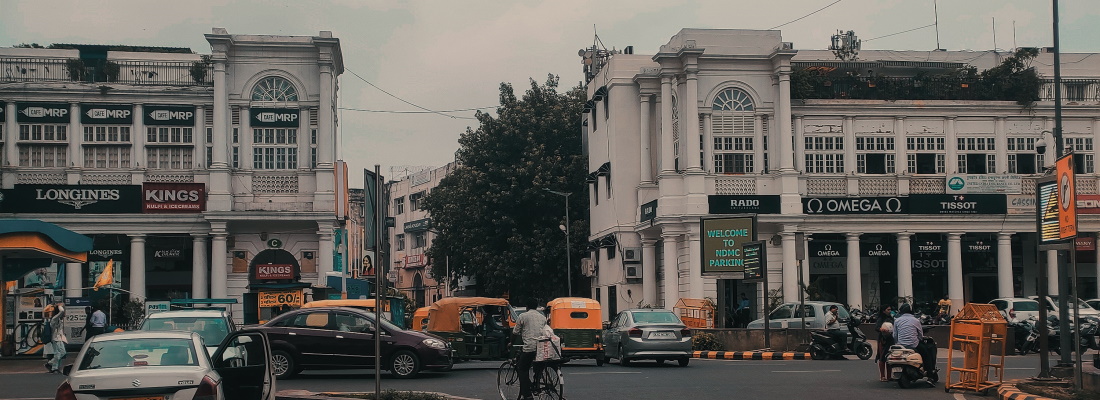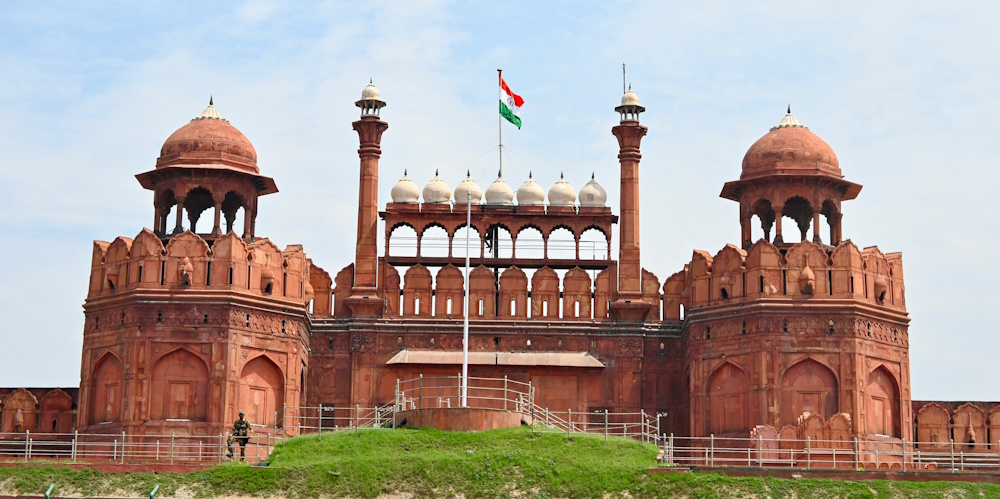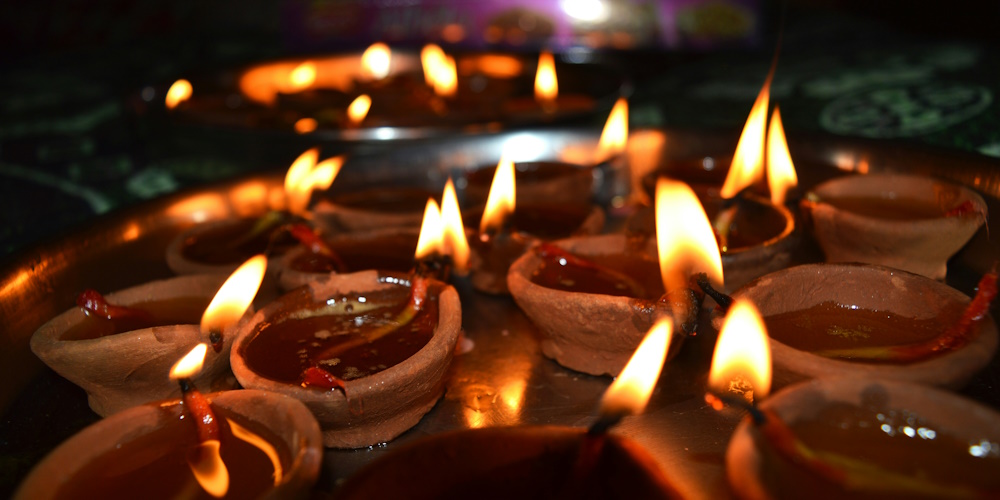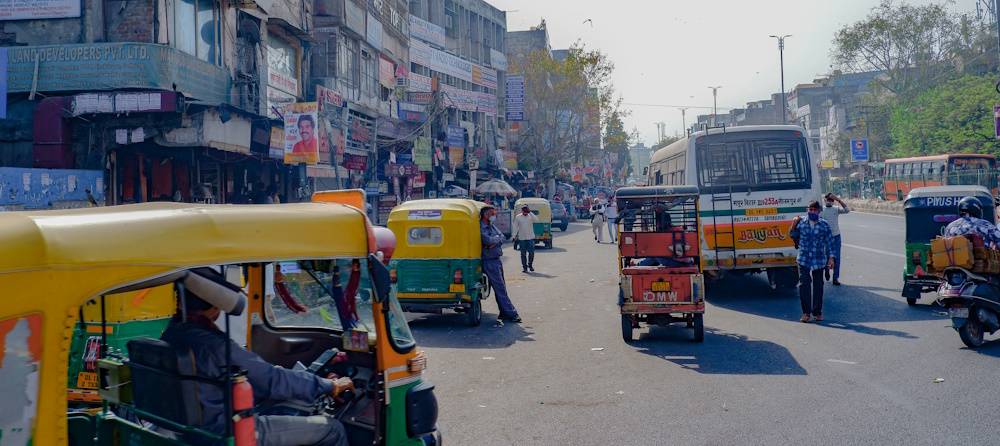Finding top-quality yet affordable accommodation in Delhi is no walk in the park. With the city’s high demand for housing and a rapidly growing population, prices have soared in recent years.
However, expanding your search to the wider National Capital Region (NCR) can be helpful. While housing prices have surged, especially in sought-after areas like Dwarka Expressway and Golf Course Road in Gurugram, certain parts of the NCR have experienced relatively lower rental increases than other major cities in India. This could mean saving some money on rent if you choose your location wisely.
If you’re fortunate, your employer might lend a hand in your search for a home in Delhi. But if you’re going it alone, hiring a reliable real estate agent can make the process much smoother. It’s wise to start by getting an overview of the local property market, gathering tips on finding the right accommodation and understanding rental contracts. This will help you navigate the ins and outs of renting in Delhi with confidence.
Areas and suburbs in Delhi
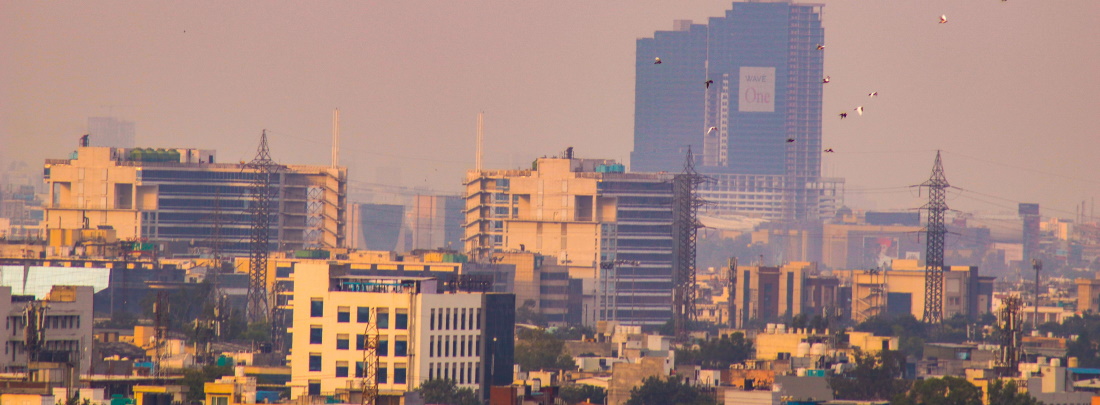
Delhi, the bustling capital of India, offers a rich tapestry of neighbourhoods, each with its own distinct vibe and appeal. If you’re making the move, it’s crucial to find the area that best suits your lifestyle. Whether you’re after the energetic buzz of Hauz Khas Village or the serene, family-friendly ambience of Jor Bagh, Delhi’s suburbs offer something for everyone.
Areas like Gurugram, Noida, and Greater Noida have recently gained significant popularity. These suburbs, well-connected and brimming with modern amenities, attract many who prefer a blend of comfort and convenience. Dwarka Expressway and Golf Course Road in Gurugram, in particular, have seen a surge in demand, offering upscale living environments with all the bells and whistles.
Keen on exploring further? Check out our comprehensive guide to the Best (and Worst) Areas and Suburbs in Delhi.
Types of accommodation in Delhi
Your choice of accommodation in Delhi will largely depend on your lifestyle and the neighbourhood you wish to live in. Most of the housing in and around Delhi’s city centre consists of modern high-rise apartment complexes, independent floors, and condos. In some suburbs, you might find villas and old colonial properties available as well.
High-rise apartments in Delhi offer an urban lifestyle with plenty of modern amenities. These buildings typically feature shared facilities like gyms, swimming pools, and security services, making them an attractive option if you value convenience. They’re usually located in central areas, providing easy access to public transport and essential services. On the downside, these apartments can be pricier, and living in such a dense environment may sometimes feel isolating.
Independent floors, often called builder floors, are among the most popular types of property in Delhi. These can typically be found in low-rise buildings where you can rent an entire floor rather than just a section or unit. Staying on an independent floor offers more privacy and space than a high-rise apartment. However, amenities like gyms and swimming pools may not be available unless the building is part of a high-end gated complex.
If you prefer more seclusion and space, villas or independent houses might be your best bet. Although harder to find and generally more expensive, these properties offer a higher degree of privacy and often come with gardens or outdoor spaces. They are ideal if you have a family or enjoy a quieter, more spacious living environment.
The term "BHK" (bedroom, hall and kitchen) is frequently used in India. If you’re single, you might settle on a one-BHK property (meaning a one-bedroom apartment with a hall and kitchen), while families may search for two or three (and so on) BHKs.
Furnished vs unfurnished
When choosing between furnished and unfurnished properties in Delhi, consider your personal circumstances and preferences. Furnished properties are highly sought after, especially among expats and young professionals who prefer the convenience of moving in without the hassle of buying furniture. These properties are usually more expensive due to their added amenities and convenience.
On the other hand, unfurnished properties appeal to those planning a longer stay and who prefer to customise their living space. These properties tend to be more affordable, making them an attractive option if you’re looking to save on rent while adding your personal touch to your home.
Short lets
If you’re looking for short-term accommodation in Delhi, you’ll find plenty of options, especially in central areas like Connaught Place and South Delhi neighbourhoods such as Greater Kailash and Saket. These areas are popular among tourists and business travellers for their convenience and proximity to key amenities.
Short lets, often available through platforms like Airbnb, offer flexibility and convenience, although they can be more expensive per night than long-term rentals. These rentals are ideal if you’re visiting Delhi for a short period or need temporary housing while you search for a more permanent place.
Finding accommodation in Delhi

If you’re relocating to Delhi for work purposes, your employer might assist in the accommodation search. In many cases, your employer will already have accommodation secured for you. Although this limits your choice somewhat, it saves you a lot of hassle. Usually, the accommodation provided by employers is comfortable and located close to your workplace.
Alternatively, you can research online before arriving in India. Various property portals make it easier than ever to find the perfect place. These websites offer extensive listings and detailed market insights, allowing you to connect directly with landlords to avoid paying hefty brokerage fees.
Once in India, internet and newspaper listings are a good source of property information, but the best option is to enlist the help of a reputable estate agent. Real estate professionals charge a fee, but they have intimate knowledge of the property market and understand the process of securing a rental property in Delhi.
Useful links
Renting accommodation in Delhi
Rental prices in Delhi can vary widely depending on the neighbourhood and the property’s age. For example, newer buildings, especially those in high-demand areas like Gurugram or Noida, can command significantly higher rents than older structures. In some cases, rents for new developments can be up to double that of older buildings.
There isn’t a set formula for calculating rent in Delhi, unlike in many Western countries. Landlords often set prices based on demand, location, and the property’s condition. This is where a knowledgeable real estate agent comes in handy – they can help you determine whether the rent you’re being asked to pay is in line with similar properties in the area.
Making an application
When applying for a rental property in Delhi, you’ll need to be prepared with a few key documents. These typically include:
- Proof of identity: Such as an Aadhar card, passport, or another government-issued ID.
- Proof of address: This could be a recent utility bill, rent receipt, or bank statement.
- Passport-sized photographs: Usually two, for both you and your landlord.
- Proof of income: Salary slips or bank statements to show that you can afford the rent.
Your landlord will need to provide documents like the sale deed or property tax receipts to prove their ownership.
Having these documents ready can streamline the application process, helping you secure your desired property more quickly.
Leases
Understanding the lease terms is critical when renting accommodation in Delhi. Most leases in the city are for 11 months, but longer-term agreements are also available. If you opt for a lease longer than 11 months, it’s important to know that the agreement must be registered with the relevant housing authorities. This process includes paying registration costs and stamp-duty charges.
Deposits
In the past, landlords in Delhi often demanded hefty deposits, sometimes as much as six to 11 months’ rent. New legislation has made this illegal, capping security deposits at a maximum of two months’ rent. This rule is being enforced more strictly, and tenants are encouraged to report any landlords who attempt to disregard this regulation.
Notice periods
Notice periods in Delhi are essential to rental agreements. Both you and your landlord must give or be given notice of at least three months ahead if either party wishes to terminate the lease early. Failing to adhere to this notice period can have legal consequences.
If you, as a tenant, don’t follow the agreed notice period, you might forfeit your security deposit or face other penalties. On the other hand, if a landlord fails to provide adequate notice, they could be required to compensate you for any inconvenience or losses incurred due to the abrupt termination of the lease.
Utilities in Delhi

As an expat in Delhi, you’ll need to manage several essential utilities, including electricity, gas, water, waste management, and internet. These services are generally reliable, but it’s important to understand how each works to avoid any surprises. You should expect to cover the costs for utilities, including electricity, water, and any maintenance charges.
Electricity
Electricity in Delhi is supplied by three main private companies: BSES Rajdhani Power Limited (BRPL), BSES Yamuna Power Limited (BYPL), and Tata Power Delhi Distribution Limited (TPDDL). These companies were established following the unbundling of the Delhi Vidyut Board in 2002, significantly improving the efficiency and reliability of the electricity supply.
The electricity supply in Delhi is generally reliable, with 24/7 availability. The city has dramatically reduced load shedding, making power cuts rare. However, some challenges may arise during peak demand periods, such as the sweltering summer months. Electricity tariffs in Delhi are relatively low compared to other major Indian cities, but your bill may include a surcharge known as the Power Purchase Adjustment Cost (PPAC), which fluctuates with fuel prices.
You can pay your electricity bill online on the respective Discom’s website or app, by bank transfer, or in person at payment centres or through. To set up automatic payments, you’ll need to register your account on the provider’s website or mobile app, select your payment method, and set your payment preferences. Bills are usually issued monthly, and you can expect to receive them around the same date each month.
To set up a new electricity connection, apply to your relevant Discom, along with proof of identity, proof of address, and passport-sized photographs. An inspection of the premises may be required before activation, which typically takes between seven to 15 days.
Delhi offers energy-saving incentives, particularly for installing energy-efficient appliances and solar energy systems. Ensure your appliances are compatible with Delhi’s 230V, 50Hz power system, or use appropriate adapters.
Gas
Gas in Delhi is provided primarily by Indraprastha Gas Limited (IGL) for Piped Natural Gas (PNG) and by public sector companies like Bharat Gas, HP Gas, and Indane Gas for Liquefied Petroleum Gas (LPG) in cylinders. PNG is more common in urban areas due to its convenience and reliability.
The gas supply is generally dependable, but there may be occasional disruptions due to maintenance. For safety, always ensure proper ventilation when using gas appliances and regularly check for leaks.
For PNG, you can pay monthly bills through IGL’s website or mobile apps like Paytm. For LPG purchases, you can order cylinders through the supplier’s website or authorised retailers.
Water
Water in Delhi is primarily supplied by the Delhi Jal Board (DJB), which manages the production and distribution of potable water to the city’s residents. Serving around 19.5 million people, DJB’s extensive network ensures coverage across most areas, though the reliability of supply can vary significantly.
Many households have piped water connections, but the supply can be limited to just a few hours each day, especially in densely populated areas. This can lead to reliance on alternative sources, such as water tankers or bottled water, particularly during shortages. While DJB treats the water to make it potable, it is generally advised to use filtered or bottled water for drinking to avoid potential health risks.
Delhi encourages water conservation through measures like rainwater harvesting, and financial assistance may be available for installing these systems. During periods of water scarcity, restrictions may be imposed on non-essential water usage, so it’s important to stay informed.
You can pay your water bill online through the DJB website or mobile app, via bank transfer, or in person at DJB offices or authorised payment centres. Water bills are typically issued monthly, and you can expect them around the same time each month, depending on your specific connection.
Bins and recycling
Waste management in Delhi is managed by five municipal authorities, including the North, South, and East Delhi Municipal Corporation, the Delhi Cantonment Board, and the New Delhi Municipal Council. These bodies are responsible for garbage collection, disposal, and recycling within their respective areas, handling over 9,000 tonnes of waste daily.
Residents are encouraged to segregate waste into three categories: biodegradable, dry, and hazardous. While this practice is mandated, compliance varies, and many households still mix waste, complicating the recycling process. Recycling programmes are in place, but their effectiveness depends largely on local enforcement and public awareness.
Monthly garbage collection fees vary based on property type, with commercial properties charged more than residential properties. In many cases, garbage collection fees are included in the rent, but separate billing is becoming more common, especially for commercial properties.
Common recyclables include paper, plastics, glass, and metals. If kerbside pickup isn’t available, recyclables can be dropped off at designated centres or sold to local kabadiwalas. Delhi promotes eco-friendly practices like composting, and there are facilities and community programmes dedicated to processing organic waste into compost.
Internet
Delhi’s internet services market is competitive, with several major ISPs offering a variety of plans to suit different needs. The main providers include Airtel, ACT Fibernet, Hathway, Tikona, and BSNL, each offering options ranging from basic broadband to high-speed fibre connections.
Internet reliability varies depending on the provider and locality, with ISPs like Airtel and ACT Fibernet generally delivering consistent performance. However, some areas may experience slower speeds or interruptions, particularly during peak times or in densely populated neighbourhoods.
To pay your ISP bill, you can use online payments through your ISP’s website or app, bank transfers, or in-person payments at your ISP’s offices or at authorised payment centres. Most ISPs offer automatic payment options, which can be set up by registering your account on their online portal, linking your bank account or card, and selecting your payment preferences.
To set up an internet connection, choose an ISP based on your speed and budget requirements and submit an application online or at the ISP’s office. You will need to provide proof of identity, proof of address, and possibly passport-sized photographs. Installation typically takes a few days to two weeks, and fees may apply, depending on the plan and provider.
Be aware of data caps and fair usage policies that may apply to your plan, as exceeding these limits could result in reduced speeds. Internet speeds in Delhi generally range from 30 Mbps to 1 Gbps, though actual performance can vary based on network congestion and infrastructure. Expats can compare ISPs and plans through platforms like Sulekha and Paytm, or directly on the ISPs’ websites.
